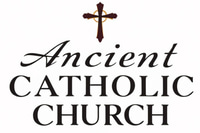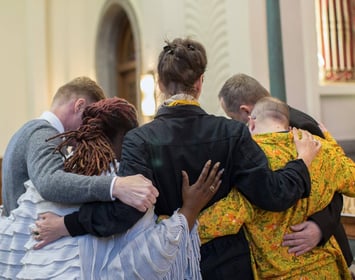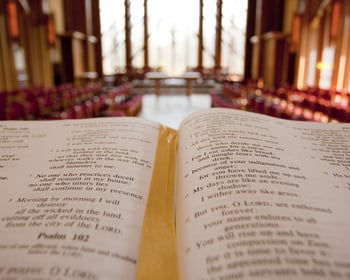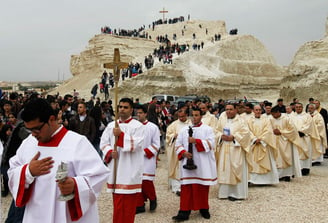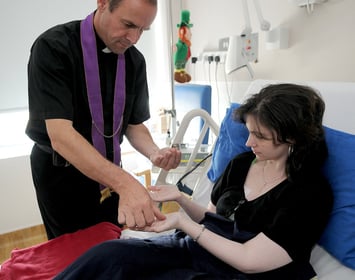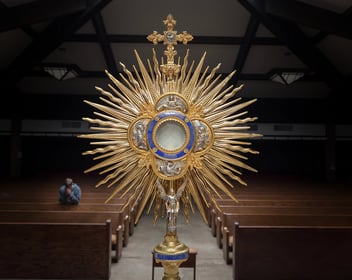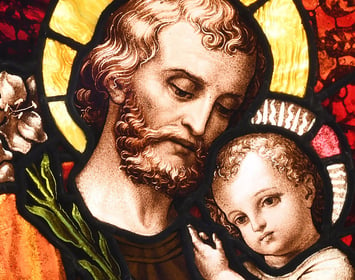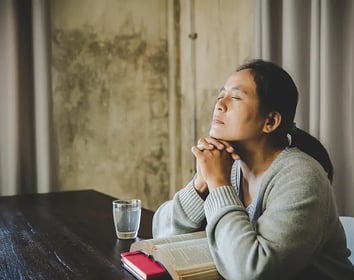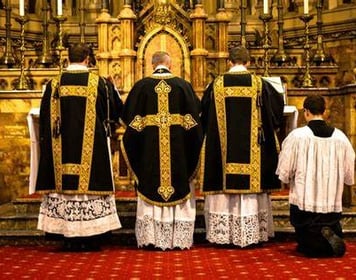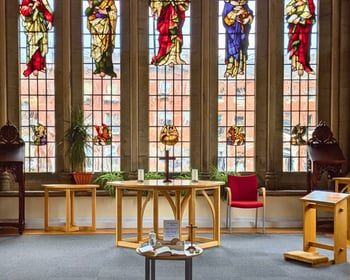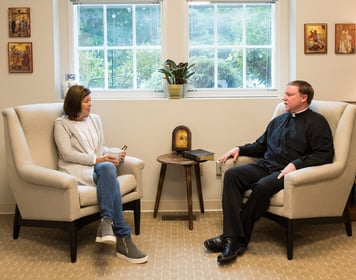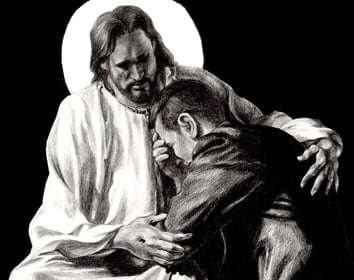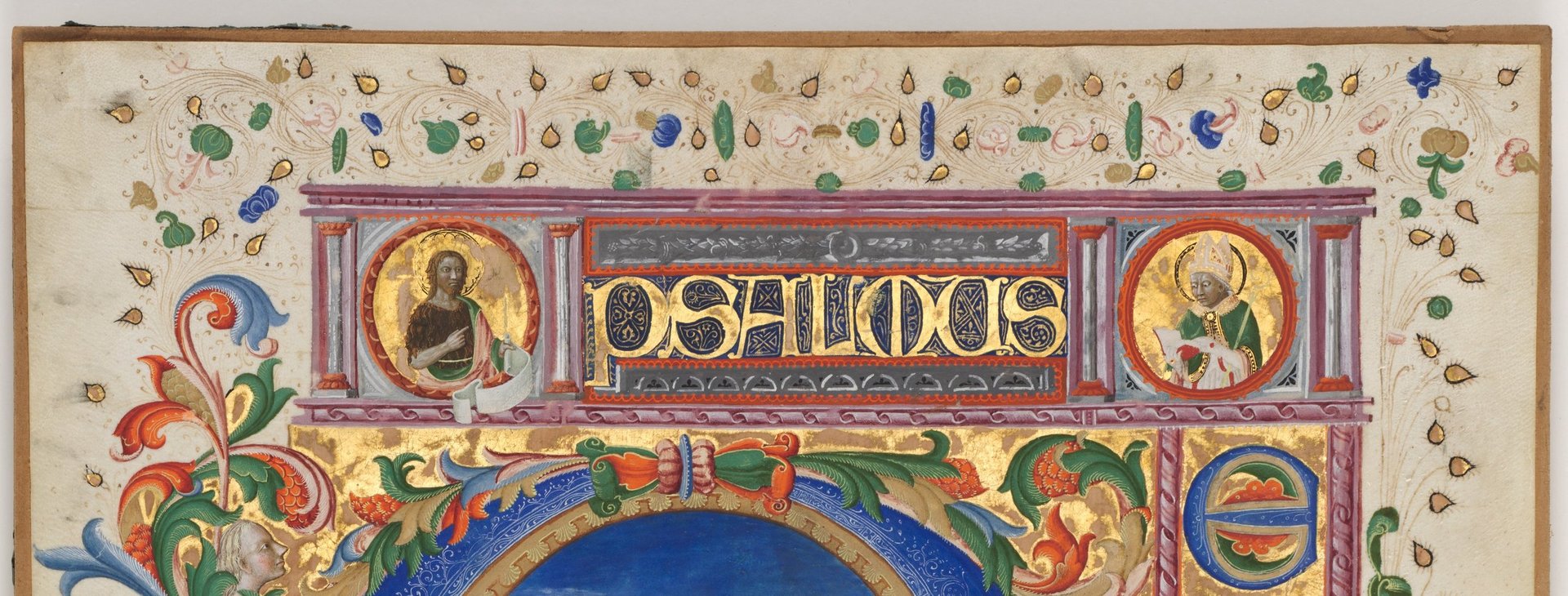
Liturgy of the Hours
We invite you to discover, belong, and journey with us in faith. Welcome home to the Ancient Catholic Church—where tradition meets mission, and community flourishes.
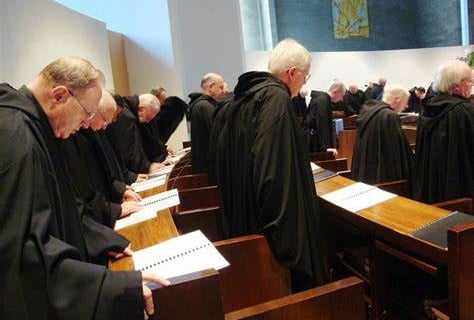

The Liturgy of the Hours, also known as the Divine Office, is a sacred cycle of prayer that has sanctified the daily lives of the faithful for centuries. Its origins reach deep into the history of the Church, rooted in the ancient practice of reciting the Psalms—a tradition that finds its echo in both the Old and New Testaments. Early Christians adapted this rhythm of prayer to structure their lives, cultivating moments of praise and reflection that delighted in the presence of God throughout the day.
Over time, what began as communal prayer in the early Church evolved into a structured devotion embraced especially by monastic communities. Monks and nuns developed a precise schedule—marking morning, midday, evening, and night—with each period dedicated to prayer, reflection, and renewal. This regular chanting of the Psalms and other sacred texts provided a counterpoint to the temporal world, creating a spiritual sanctuary that both isolated and connected them with the broader community of believers.
Today the Liturgy of the Hours has gracefully stepped beyond the cloisters and found its home in the hearts of laypeople. When you invite the Divine Office into your home—even if it’s just a simple morning or evening prayer—you join an ancient and unbroken tradition that connects you with communities in monastic houses around the world. In this shared practice, your private moments of spirituality are embraced as part of the universal chant of prayer. Whether in the quiet of a personal prayer corner or the resonant voices of a monastery, every uttered psalm and every whispered prayer contributes to a global tapestry of worship—a vibrant communion in which all are invited to praise God as one.
Embracing the Liturgy of the Hours is an invitation to join a tradition that has spanned centuries. It is both an intimate, personal practice and a unifying vocation that links every believer—whether at home or in a monastery—into one harmonious, eternal chorus of adoration.
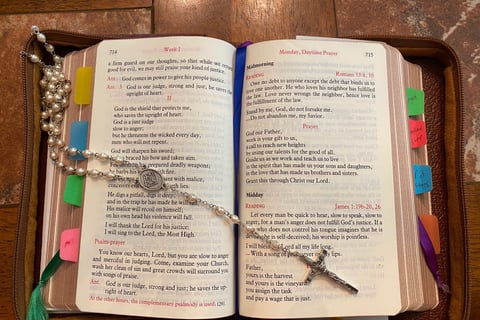

The Liturgy of the Hours: Embracing the Divine Office
A Gentle Guide to Beginning the Divine Office
For those encountering the Liturgy of the Hours for the first time, a simple, welcoming approach is key. Rather than feeling overwhelmed by its complete cycle, consider beginning with just one of the established prayer hours. Here are a few practical suggestions:
Morning Prayer (Lauds)
Start your day with a spirit of gratitude and renewal. Choose a familiar psalm, or recite a short prayer of thanksgiving. The quiet of dawn provides a perfect backdrop, inviting you to set your intentions for the day ahead.


Evening Prayer
As daylight wanes, use this time to reflect on the events of the day. A gentle prayer asking for peace, acknowledging your blessings, or even a simple moment of silence can transform routine end-of-day activities into a sacred ritual.
End your day with a prayer that brings comfort as you lay down to rest. A reflective prayer, perhaps recounting moments of protection and care, can ease your transition into a peaceful sleep.
Night Prayer (Compline)
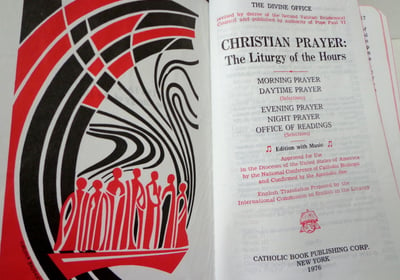

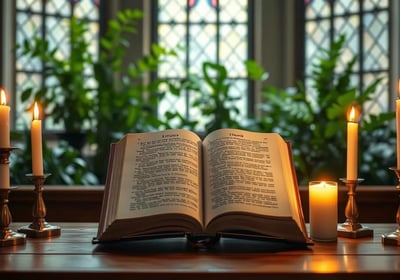

By choosing one prayer hour to focus on initially, you can gradually ease into the rhythm of the Divine Office. In time, as you grow comfortable, consider exploring additional hours of prayer to enrich your daily spiritual practice.
Examples of Prayer
If you’re unsure of where to begin, here are a few prayer samples to help you along your journey:
A Psalm of Thanksgiving (Morning):
“The Lord is my light and my salvation; whom shall I fear? The power of the Lord is with me.”
Reflect on the new day as a gift from the Divine, embracing both its challenges and its beauty.A Reflection of Quiet Gratitude (Evening):
“Be still, and know that I am God. Thank you for the moments of grace that sustained me today.”
Allow the solitude of the evening to draw your thoughts inward, acknowledging moments of growth and grace.A Prayer for Peace (Night):
“O Lord, grant me a peaceful rest; refresh my soul as I surrender my worries into your care.”
Let this simple prayer be a calming ritual that prepares your heart for rest and renewal.
Each of these prayers is designed to be both accessible and adaptable. Feel free to adjust the words and sentiments so that they naturally resonate with your personal spiritual journey.


Alternatives to Traditional Prayer in the Liturgy of the Hours
While the Liturgy of the Hours is celebrated for its rich, structured recitations of Psalms and timeless prayers, we recognize that every spiritual journey is unique. For some, the formal texts may feel challenging or restrictive at first. Fortunately, there are inspiring alternative approaches that capture the spirit of the Divine Office while allowing personal expression and flexibility. These alternatives not only invite you into a deeper communion with God but also help weave your daily life into a continuous tapestry of prayer and contemplation.
Embracing Contemplative Silence and Meditation
One profound way to enter into the rhythm of the Divine Office is through contemplative silence. Instead of reciting set prayers, you may choose to simply sit in quiet reflection. In these moments, allow your soul to become aware of God's presence. This meditative pause can be integrated into your morning, midday, or evening routine. By focusing on your breath or a single sacred word, you create a personal sanctuary where silence becomes its own prayer—a living dialogue with the Divine that unfolds naturally throughout the day.
Lectio Divina: A Scriptural Pathway to Prayer
Another cherished alternative is Lectio Divina, a practice of sacred reading that invites you to slowly and meditatively engage with Scripture. This ancient method, rooted in the early monastic tradition, encourages you to:
Read a short passage slowly.
Meditate on its meaning.
Pray by responding with a heartfelt conversation with God.
Contemplate the insights that arise.
This approach allows you to experience the Word of God deeply while echoing the rhythm of the liturgical hours, making Scripture your invitation to continual prayer.
Sacred Music and Chant as Meditative Prayer
For many, music transcends words and directly touches the heart. Integrating sacred music—whether Gregorian chant, hymnody, or more contemporary liturgical songs—can be an enriching alternative to textual prayer. As you listen or sing along, let the melodies lift your spirit and draw your thoughts toward the Divine. Music becomes a moving prayer that unites your inner life with the ancient voices of the Church, creating a bridge between tradition and personal expression.
Spiritual Journaling and Reflective Writing
Sometimes, the written word becomes the mirror of the soul. Spiritual journaling offers an alternative mode of prayer where you can record reflections, moments of gratitude, or struggles and hopes. Over time, your journal becomes a living record of your encounter with God. Whether you write a few lines each day or engage in longer reflections, this practice transforms your daily experiences into a heartfelt conversation with the Divine.
Daily Acts as Living Prayer
Prayer need not be confined to a quiet corner or a specific hour. Consider infusing everyday activities with a sense of sacred intentionality. As you engage in routine tasks—be it preparing a meal, walking outside, or simply resting—invite mindfulness and gratitude into those moments. In doing so, every action becomes a prayerful act, echoing the ancient understanding that all of life, when offered to God, is itself a continual adoration.
Integrating Alternative Practices with Community Prayer
These alternative expressions of the Divine Office are not meant to replace the traditional texts but to complement them. Whether you are beginning your journey with contemplative silence or exploring the rich layers of Lectio Divina, know that your personal prayer aligns with a vast community. Across monastic houses and home prayer corners around the world, the essence of the Liturgy of the Hours is to join together—each private moment of reflection becomes part of an eternal, communal chorus of praise and adoration.
Reflection
Your spiritual journey is wonderfully unique, and embracing alternatives to traditional prayer within the Liturgy of the Hours can offer a refreshing start. Experiment with these varied approaches—meditative silence, sacred reading, the power of song, or reflective journaling—to discover what truly resonates with your heart. As you find your own pace and style, you are not stepping away from the ancient tradition; instead, you are enriching it. Every alternative practice is a path that leads back to the same Divine presence, uniting you with the timeless and global community of prayer.
May these alternative forms inspire you to explore new dimensions of prayer and help you experience the Divine Hours in a way that feels both personal and eternally connected.
With You in Joy and in Strife
Fostering faith, inclusion, and compassionate service within a vibrant community and beyond.
Anxiety
Many people face anxiety, and the Church stands ready to walk beside you in your journey toward peace. God’s love for you is steadfast, and His presence is near.
Bereavement
Grief touches every life, and in times of sorrow, we believe it is essential to anchor our hearts in the deep, abiding mercy of God. We offer gentle care & supportive counselling.
Our priests visit care homes with open hearts and gentle hands, offering solace, spiritual nourishment, and the warmth of Christ’s embrace.
Elderly Care
Chaplaincy
Discipleship
Evangelism
Our chaplaincy ministry is a heartfelt extension of our commitment to caring for every member of our community. Our chaplains provide compassionate support.
Discipleship is more than an aspect of being a Catholic; it is an essential element of our spiritual life. Jesus commanded His followers to "go and make disciples of all nations."
Evangelism is the radiant light of Christ breaking through the deepest shadows of fear, doubt, and despair. It is the mission and joy of the Church to proclaim this light.
Hospitals
Our ministry in hospitals is designed to be both practical and profoundly nurturing. Each visit is an opportunity to share in the individual’s journey.
Liturgy
Liturgy is more than a ritual—it is the living, breathing heart of our faith. Through sacred worship, we enter into a communal journey that bridges the past and the present.
Known as the Divine Office, is a sacred cycle of prayer that has sanctified the daily lives of the faithful for centuries. Its origins reach deep into the history of the Church.
Liturgy of the Hours
Mental Health
Pilgrimage
Rosary
Recognising the profound dignity of every individual, the Church offers a holistic approach that integrates spiritual care with professional mental health services.
Pilgrimage is more than a physical journey; it is a bridge that connects us to the very roots of our faith. Consider these revered locations.
The rosary has captivated hearts and nourished souls for centuries. It is a spiritual tool that invites the faithful into a deeper relationship with God.
Sacramental Healing
The Blessed Sacrament is a living encounter with the mercy, grace, and transformative power of Christ. We invites each believer to open their heart to this divine mystery.
Communion of the Saints
The practice of veneration of the saints affirms the community of believers, but also serves as a profound reminder of the eternal connection between heaven and earth.
Spiritual direction is a sacred dialogue that encourages growth, healing, and understanding, ultimately aiming to deepen one’s relationship with the divine.
Spiritual Direction
Prayer Requests
Requiem Mass
Mass Intentions
We warmly invite you to submit your prayer requests. Remember, you are never alone in your struggles, and together, we can experience the healing power of prayer.
This liturgical celebration is a time for the faithful to gather in prayer, remembering and honouring the soul of the departed while seeking God's mercy and peace.
Every soul has specific needs—be it healing, guidance, hope, or gratitude—we offer the opportunity for a priest to incorporate your special intention into the Liturgy of the Eucharist
Depression
Rooted in Scripture and guided by Christ’s love, the Church can play a powerful role in mental health programmes that combine professional care with spiritual nourishment.
Ancient Catholic Church
Embracing faith, inclusion, and compassionate service together.
ST THOMAS AQUINAS SEMINARY
© 2025. All rights reserved.
QUICK LINKS
